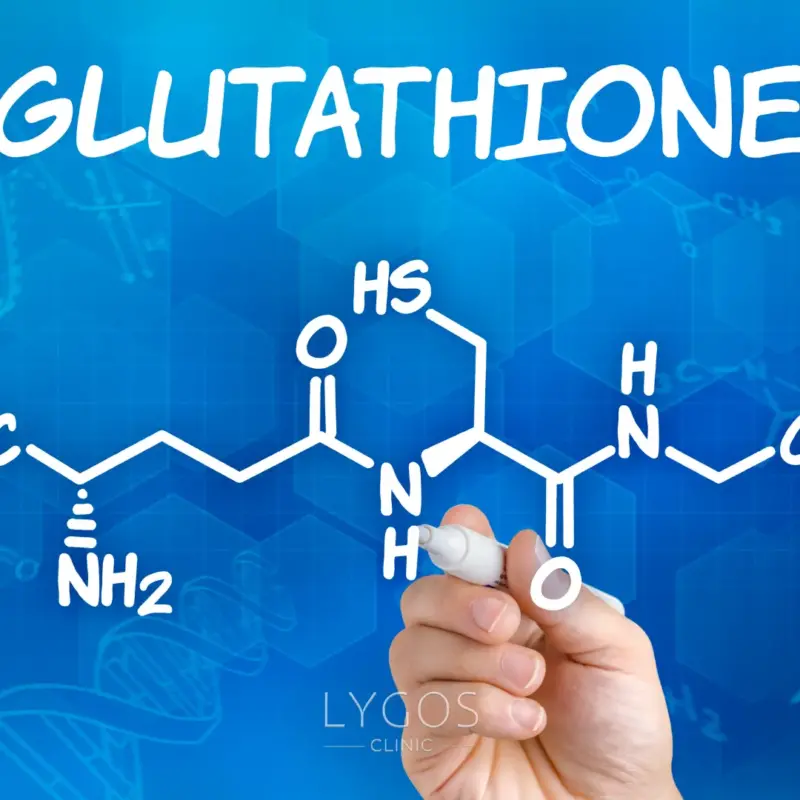What is Alpha Lipoic Acid (ALA) | LYGOS CLINIC 2025

What is Alpha Lipoic Acid (ALA)?
Alpha lipoic acid (ALA) is a powerful antioxidant known by different names such as Biletan, Lipoicin and Thioctane. This acid, which is naturally present in our body, enables the liver to function effectively. Alpha lipocytic acid, which affects the antioxidant mechanism, is generally preferred for support purposes.
It plays an important role in intracellular energy production and acts as a vital cofactor for some enzymatic complexes. ALA plays an active role in glucose and lipid metabolism. In this way, it contributes to the maintenance of energy balance. It also manages cellular processes by regulating gene transcription. It reduces oxidative stress by binding heavy metals with its chelator properties and removes them from the body. It also reduces inflammation by affecting intracellular signaling pathways. This makes ALA known for its anti-inflammatory properties.
What are the Effects of Alpha Lipoic Acid?

Alpha lipoic acid is both water and fat soluble. This ALA, which is naturally found in the body, is an acid produced from octanoic acid. So, what are the effects of alpha lipoic acid?
- Supports in the treatment of liver diseases.
- It removes damage to the nerves.
- Provides weight loss.
- Keeps blood sugar under control.
- Prevents skin aging.
What are the Benefits of Alpha Lipoic Acid?

The benefits of alpha lipoic acid are as follows:
- Prevents aging of the skin.
- Prevents conditions above normal values such as hypertension.
- Alpha lipoic is a very powerful antioxidant. In this way, it removes toxic substances from the body.
- Balances blood sugar.
- Treats neurological disorders caused by disorders such as diabetes.
- Fights against problems affecting brain cells such as Alzheimer’s and Parkinson’s.
- Corrects vascular occlusion.
- Regenerates brain cells.
Why is Alpha Lipoic Acid Used?

In addition to supporting the weight loss process, alpha lipoic acid plays an effective role in relieving diabetic nerve pain, healing wounds faster and controlling blood sugar. It can also help correct skin discoloration caused by vitiligo and is used as a supportive treatment to reduce potential complications of coronary artery bypass graft (CABG) surgery. This versatile antioxidant shows a significant impact in the management of various disorders, providing many health benefits.
Foods Containing Alpha Lipoic Acid

Alpha lipoic acid is a vitamin-like compound with antioxidant properties. It is naturally found in yeast, liver, kidneys, spinach, broccoli and potatoes. It can also be produced in the laboratory and used in pharmaceutical form.
This powerful antioxidant has the ability to replenish vitamin C and E levels while helping to prevent cell damage in the body. Research shows promising results that alpha lipoic acid can improve the function and communication of neurons in diabetic patients. With these properties, alpha lipoic acid plays an important role in supporting cellular health and nervous system function.
How to Use Alpha Lipoic Acid?
Although alpha lipoic acid is produced in the body as a natural antioxidant, this production is usually not sufficient. Therefore, the need for external supplementation arises over time. Within the use of alpha lipoic acid, it can be listed in the form of creams for the skin, orally as capsules or intravenously into the body. Although research shows that a daily intake of 20 mg to 50 mg of alpha lipoic acid may be generally appropriate, this amount may vary according to personal needs.
For this reason, it is strongly recommended that people who take regular medication or have any health problems consult their doctor before using foods or supplements containing alpha lipoic acid. Since alpha lipoic acid is a powerful antioxidant, it is recommended to take it two or three times a year, in three-month courses. The fact that this compound is both water and fat soluble means that the ideal time to take it is between meals or on an empty stomach. This way it is best absorbed and utilized by the body.






